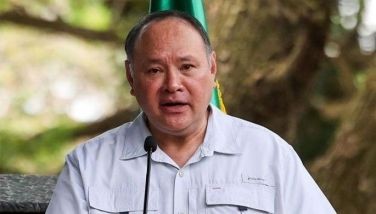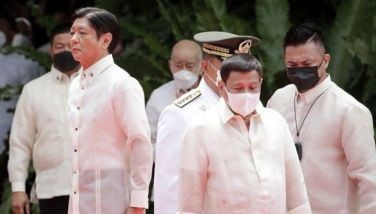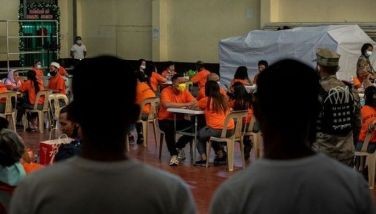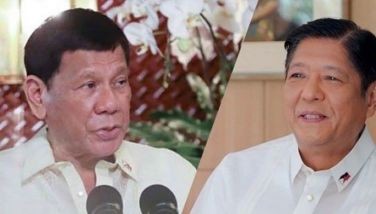Restriction on rice imports may spell trouble for Phl
MANILA, Philippines - The Philippines stands to fall into dispute with other member-nations of the World Trade Organization with its continuous imposition of quantitative restriction (QR) on rice imports, government corporate counsel Raoul Creencia has warned.
In his letter to National Food Authority (NFA) administrator Orlan Calayag, Creencia warned of possible repercussions in not meeting the commitments of the government to the WTO – including sanctions – should it insist on its QR.
Creencia explained the special treatment of rice for the Philippines of the General Agreement on Tariffs and Trade-WTO had already expired in June 2012.
Without the QR, Creencia said the government-imposed quota on rice importation would not hold water under existing provisions of the WTO.
“Other WTO member-countries, which may be prejudiced by NFA and the country’s action on rice imports, may file a dispute,†Creencia stressed.
Because of this, Creencia advised the NFA to “bring this to both the Department of Trade and Industry and the Department of Foreign Affairs’ attention.â€
Creencia cited “the clash between the intended NFA action, i.e., prolong the regime of quantitative restriction on rice and the expiration of the GATT-WTO Agreement’s special clause on rice for the Philippines.â€
“Adverse decisions on such disputes may result in WTO sanctioned retaliation to the Philippines,†he said.
The QR imposed a 40 percent duty on rice entering the country under the Minimum Access Volume.
Imports outside of the 350,000 metric tons Minimum Access Volume are levied a higher tariff of 50 percent.
The legal opinion on the QR was issued as the average retail price of a kilo of well-milled rice had hit the P40-mark amid flaws in the rice importation policies of the NFA.
The Philippine Statistics Authority-Bureau of Agricultural Statistics said that as of Feb. 11, well-milled rice now retails for P40.06 per kilogram.
This was 13.58 percent higher than the same period last year.
A kilo of regular-milled rice, on the other hand, now retails for P36.75, which is 14.74 percent higher than in February 2013.
The country is poised to conduct further negotiations for the extension of the QR in March this year.
Negotiations are ongoing with four countries – the United States, Canada, Australia, and Thailand – that have withheld support for the extension of the QR until tariff concessions are given on beef, chicken, swine and turkey.
Justice Secretary Leila de Lima earlier admitted the Department of Justice was wary about providing a definitive opinion on the QR as it was carefully studying the issue.
“It might jeopardize the ongoing negotiations if, for example, our final opinion is that the QR has been lifted,†De Lima said.
“It would not be wise or prudent for me to publicly declare that opinion until we shall have thoroughly discussed it with the Solicitor General,†she added.
Stakeholders in the rice industry have been waiting for the legal opinion from the DOJ on the issue, which they said would serve as a guide for the courts in resolving petitions for injunction filed by rice importers.
The GATT allowed member-countries of the WTO to restrict the importation of sensitive agricultural products. The agreement, however, expired in June 2012.
While the government has started renegotiating with member-countries on the extension of the pact, it continued to impose the QR.
Rice importers questioned the policy, saying their importations should be allowed even without import permits as long as the corresponding taxes are paid now that the WTO-GATT has expired.
The issue was further highlighted after the Bureau of Customs seized tons of rice shipments without permits, which were later released upon separate court orders.
Two former chiefs of the NFA also pointed out that flawed government policy, not smuggling, poses the biggest threat to the nation’s rice industry.
Anthony Abad explained that smuggling is just one of the many symptoms of a flawed system of rice regulation.
Lito Banayo, for his part, warned that government’s continued monopoly of rice importation could cause NFA’s debt to balloon to as much as P190 billion.
Banayo had warned the NFA’s continued monopoly over rice importation, through government-to-government transactions, is a virtual “white elephant,†which would cost the country billions in public funds.
Yesterday, Banayo went to the National Bureau of Investigation to explain his policies as former NFA chief.
Banayo was invited by the NBI in the ongoing probe into the rice smuggling activities in the country.
“I was invited to shed light on the rice policy of the Aquino administration,†he said.
Banayo was questioned for about two hours. He claimed that the meeting was limited to the NFA’s policies during his stint. He served as NFA administrator during the first two years of the Aquino presidency.
Banayo also said the problem of rice smuggling should be under the watch of Bureau of Customs.
Banayo also said he is and was against the policy of the NFA council, allowing farmer cooperatives to bid for import permits. – With Aie Balagtas See
- Latest
- Trending




























